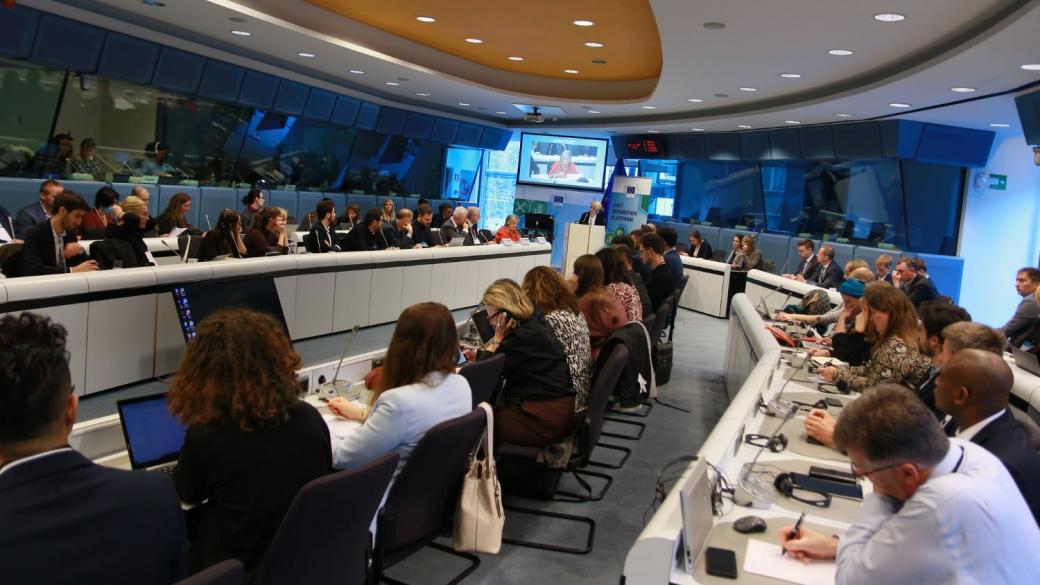A European Fair Transition Observatory is coming soon
This was one of the main announcements made at the closing session of the Just Transition Platform Conference

The policy-led energy transition in Europe has inclusive aims but is not by default and has uneven effects on different regions and different groups of people. So that the Cohesion policy can deliver on its promises to deliver a just transition it is necessary to listen to people and local authorities and take their concerns and fears seriously.
The above was expressed as a takeaway from Frank Siebern-Thomas, an expert who has been working closely with the issue as part of the DG Employment team at the European Commission. Mr Siebern-Thomas and other EU representatives met up for a dialogue filled session that traditionally closes the annual Just Transition Platform Conference (the one that ended yesterday was the 10th edition of the event).
Siebern-Thomas revealed that there was a new facility in development by his Directorate-General. Called the European Fair Transition Observatory (ETFO), it is planned to launch next year as a two-year pilot project, which will facilitate policy makers in analyzing the socio-economic impact on the ground in the different regions and taking more adequate decisions.
After all, different regions and even different economic sectors are experiencing different impacts from the phasing out of fossil fuels. This translates into opportunities, but also into challenges and concerns for the workers and their families.
Top concerns: quality of jobs and energy bills
The DG Employment representative cited a survey from two years ago, taken in the midst of the energy crisis, which showed that overall, there was a strong support, understanding and commitment to the energy transition on part of European citizens.
People showed willingness and responsibility to change their lifestyles and contribute and believed transition can create more jobs than it can destroy, but they also had concerns about high energy costs and their capacity to acquire new skills”, he said.
These anxieties revealed the source of where the perceived unfairness in changing from one energy model to another lies.
Although the outlook on employment is positive (between 1 and 2.5 million jobs can be created in the transformative process, particularly in renewable sectors, construction, green economy, net zero industries, clean tech manufacturing industries), the multi-level authorities have to assure and communicate to people that there are opportunities for people from dying sectors to move to these new sectors in a fair manner.
One challenge here is to focus on quality job creation. An OECD report has found that lower-skilled people are often penalized by lower quality jobs in that transition process to the new economies and that has to be addressed.
The concern about higher energy prices is not unfounded either. Despite all measures, energy poverty has increased to affect 17 million more people in Europe in the last two years (for a total of 48 million people).
DG Employment released a Recommendations tool for the ‘Fit for 55’ package, and that has served as the basis for the proposed European Fair Transition Observatory (ETFO).
The Recommendations are a legally non-binding agreement that member states have adopted as a broad guideline that stresses the need for effective use of funding source to steer policy and to share relevant initiative examples between each other.
Overall member states are taking action, but they still have to improve in terms of systematic policy. Frank Siebern-Thomas singled out the Spanish coal mining region of Asturias as a bright exception and a shining light for having a good just transition strategy in place.
Apart from the Just Transition Fund, he reminded the audience that other financing instruments, such as ESF+ (European Social Fund) also have a role to play in retraining and upskilling. Furthermore, the Social Climate Fund, which is being put in place, will address the problem of higher energy prices for vulnerable households and SMEs.
Siebern-Thomas concluded with an appeal to share the local transition stories more transparently, both for those who succeed and who struggle, as this was the best way to counteract the disinformation narratives that fueled fears in the most affected regions.
Co-Funded by the European Union. Views and opinions expressed are however those of the author(s) only and do not necessarily reflect those of the European Union or the Managing Authority. Neither the European Union nor the Managing Authority can be held responsible for them.


 Tzvetozar Vincent Iolov
Tzvetozar Vincent Iolov